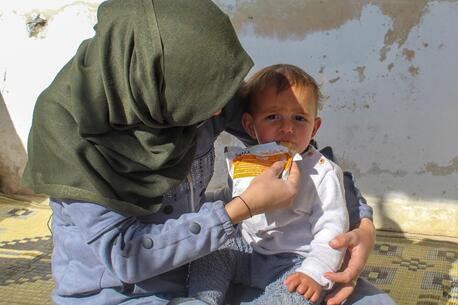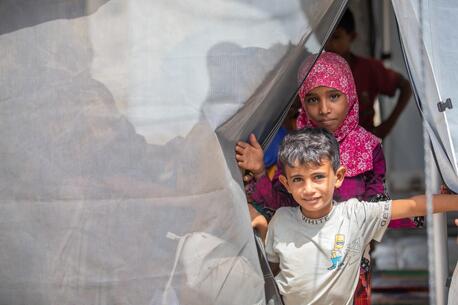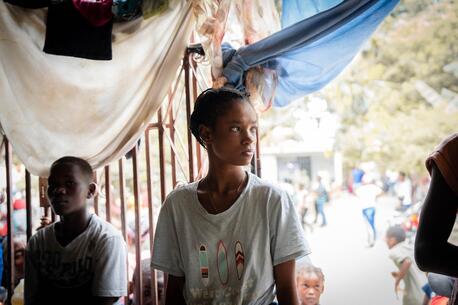
Children in Haiti Caught in Cycle of Violence
UNICEF's Executive Director calls on the international community to step up and support humanitarian response and recovery efforts in Haiti as children and families continue to suffer: "Now is the moment for all of us to invest in Haiti, its people and its future."
Displaced, malnourished, recruited by armed groups: Haiti's children face multiple threats
The humanitarian catastrophe unfolding in Haiti continues to deteriorate, UNICEF Executive Director Catherine Russell warned at a UN Security Council briefing on Oct. 22.
"Each day, Haitians endure some of the worst abuses, rights violations and threats to their lives that we are seeing anywhere in the world," Russell said.
Prolonged political turmoil, disease outbreaks, disasters and escalating armed violence persist. An estimated 3 million children in the country require humanitarian assistance.
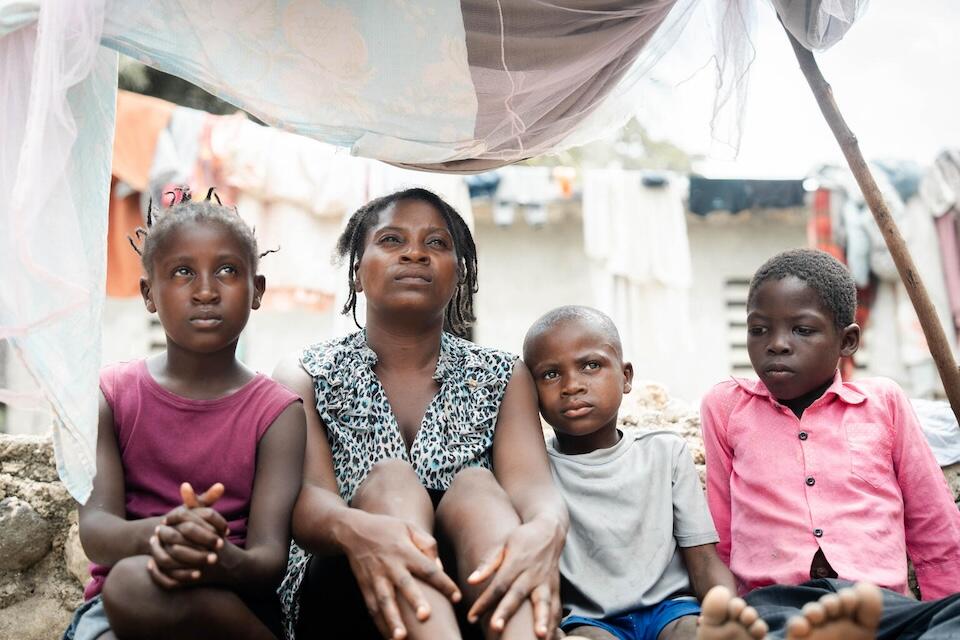
More than 3,600 people have been killed since January 2024, including at least 100 children. The number of reports of sexual violence against women and children this year is unprecedented.
Another major concern is that children are being actively recruited by armed groups — some forced to fight, others to be used as informants, cooks or sex slaves. UNICEF estimates that 30 to 50 percent of armed group members are children.
Rising malnutrition rates and a lack of access to education
With nearly half of Haiti's population facing severe food insecurity, malnutrition among children continues to increase.
At last count, there were 700,000 people internally displaced by violence. While some are sheltering with relatives, there are thousands of others living in overcrowded camps.
Each day, Haitians endure some of the worst abuses, rights violations and threats to their lives that we are seeing anywhere in the world. — UNICEF Executive Director Catherine Russell
And hundreds of thousands of students are being deprived of their right to education.
"So far this year, over 300,000 children have lost out on learning, with schools being closed, attacked or repurposed as temporary shelters for displaced people," Russell said. "As the new school year gets underway, children who are out of school will be at heightened risk of violence and recruitment by armed groups."
Watch the video:
UNICEF teams remain on the ground in Haiti working with partners to deliver urgent support and protection to children and families. But violence and insecurity in certain areas have made it difficult to consistently reach everyone in need. An estimated 1.6 million women and children living in communities under siege remain largely cut off from humanitarian aid.
"While our teams have worked tirelessly to reach areas controlled by armed groups, with some success, our access remains limited, uneven and unpredictable," Russell said.
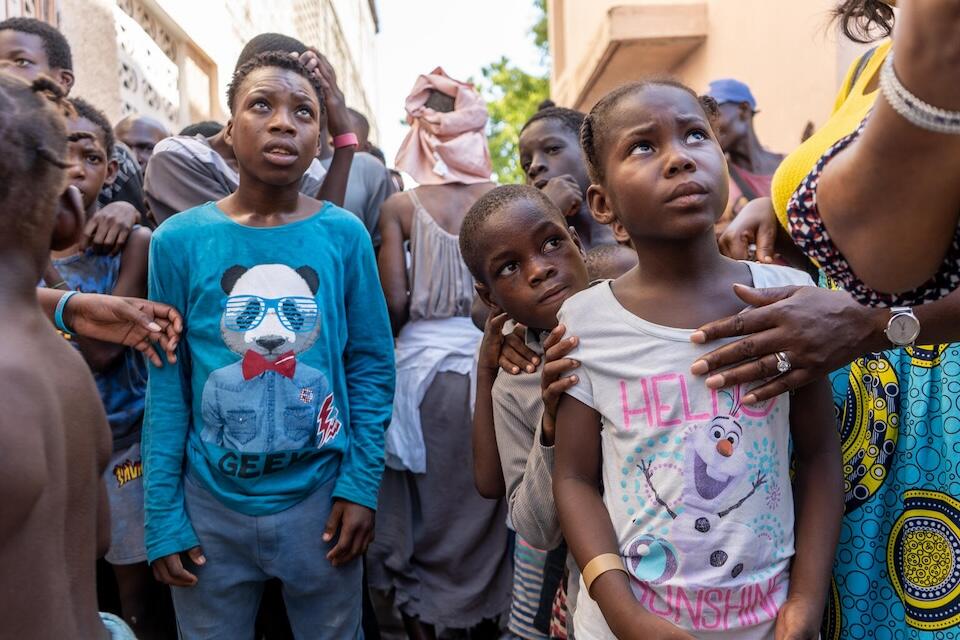
Another problem is that children and families who have migrated outside of Haiti are still being sent back. Many of those being returned are highly vulnerable, often lacking resources, official documentation and access to essential services, Russell said. "In some cases, children who have been returned have little to no family support in Haiti, and they are left to fend for themselves."
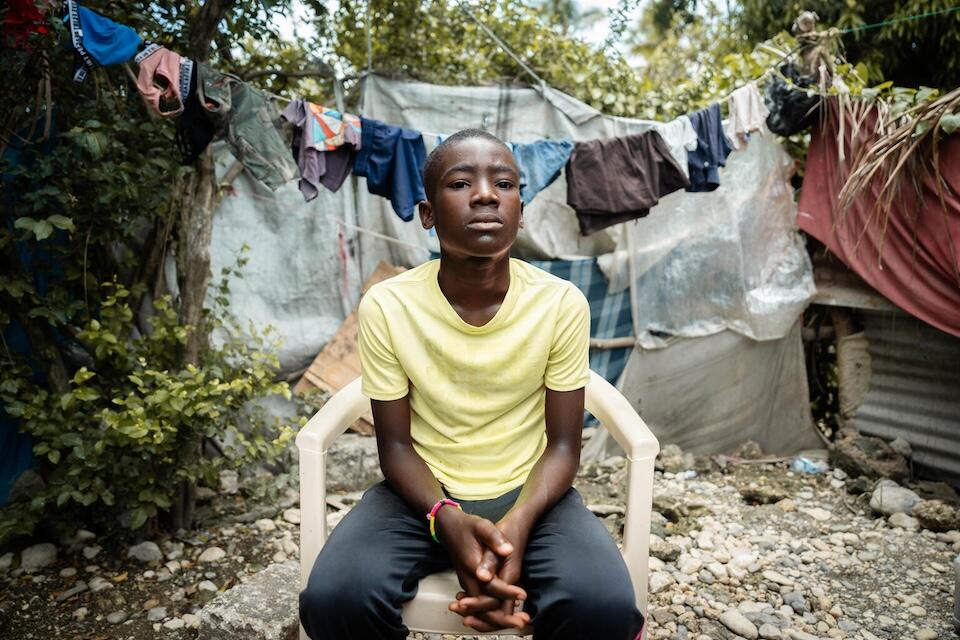
UNICEF and partners are reaching children and families in Haiti with health care, education, protection — but more support is needed
Despite all of these challenges, UNICEF and partners have managed to reach half a million people with safe water, sanitation and hygiene services and supplies. Nearly 300,000 children have been screened for severe acute malnutrition, or wasting, and nearly 600,000 people have been provided with health services.
UNICEF also works with partners to provide mental health and psychosocial support to displaced children and families and to set up non-formal education programs and catch-up classes for out-of-school students.
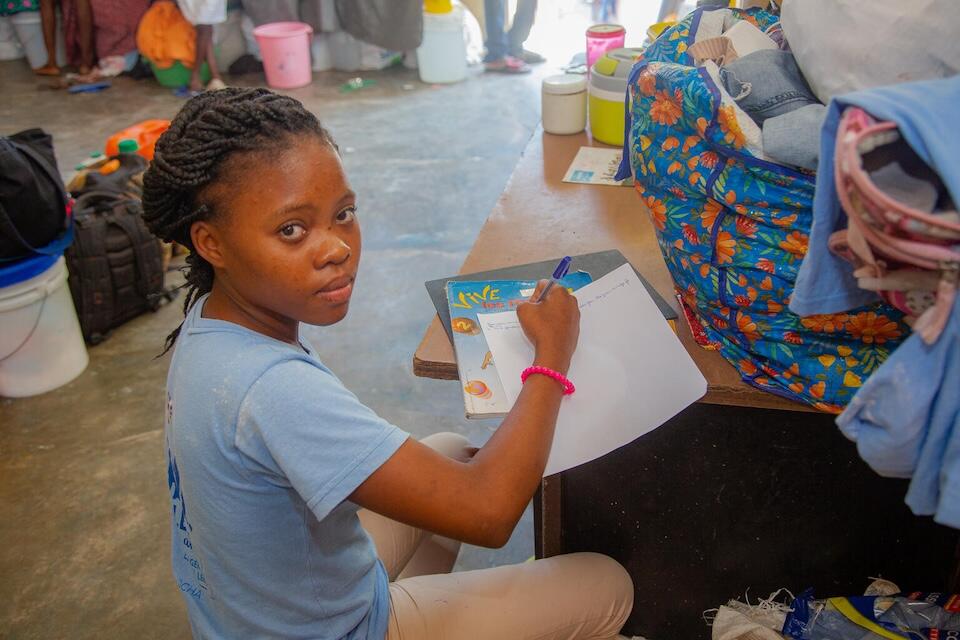
Other efforts to support children's education in Haiti include rehabilitating damaged schools, setting up temporary learning spaces, supporting teacher training and providing learning materials.
UNICEF sets up child-friendly spaces at displacement sites so children have a place to learn and play and stay safe.
With conditions worsening by the day, however, these efforts are "far from enough," Russell said. Support from the international community is urgently needed to help scale up the emergency response and to build capacity and resiliency of local and national systems. Investments in essential infrastructure and in Haitian organizations and institutions will be critical to ensuring a sustainable recovery.
"Now is the moment for all of us to invest in Haiti, its people and its future," Russell said. “Haitians, and particularly the children of Haiti, are counting on us. We must not and we cannot let them down.”
UNICEF works in over 190 countries and territories to assist children in need. Your support can make a difference.
HOW TO HELP
There are many ways to make a difference
War, famine, poverty, natural disasters — threats to the world's children keep coming. But UNICEF won't stop working to keep children healthy and safe.
UNICEF works in over 190 countries and territories — more places than any other children's organization. UNICEF has the world's largest humanitarian warehouse and, when disaster strikes, can get supplies almost anywhere within 72 hours. Constantly innovating, always advocating for a better world for children, UNICEF works to ensure that every child can grow up healthy, educated, protected and respected.
Would you like to help give all children the opportunity to reach their full potential? There are many ways to get involved.



